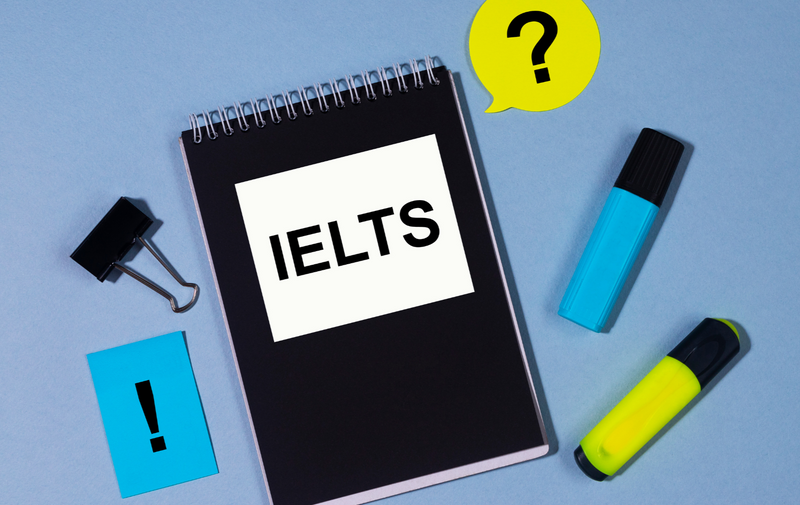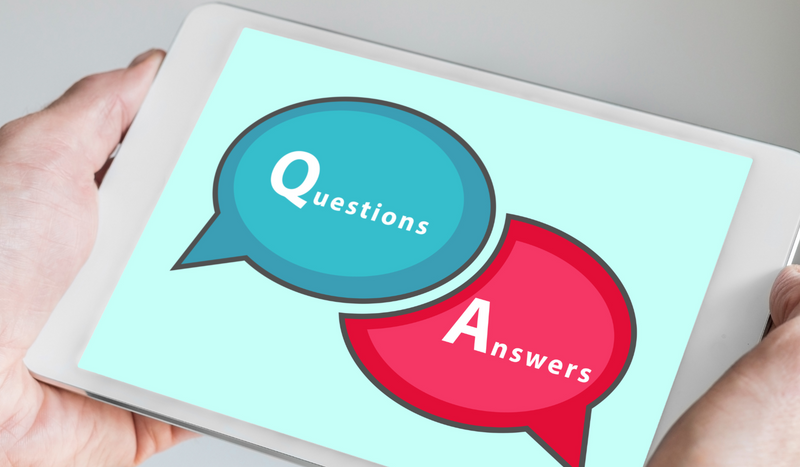
This logo isn't an ad or affiliate link. It's an organization that shares in our mission, and empowered the authors to share their insights in Byte form.
Rumie vets Bytes for compliance with our
Standards.
The organization is responsible for the completeness and reliability of the content.
Learn more
about how Rumie works with partners.
Preparing for IELTS?
As a former IELTS Speaking examiner, I understand the challenges that you may face when preparing for the speaking component of the IELTS Exam.
It can be daunting to speak in front of a stranger and answer questions on a variety of topics under time pressure.
You can achieve your desired score with some preparation strategies for IELTS speaking questions in Part 1 of the exam.
Format of Part 1 of the IELTS Speaking Exam
The IELTS Speaking Exam can be face to face or online via a video call if you take the new online IELTS Academic Test.
The duration of Part 1 is 4-5 minutes.
The examiner will ask you two types of questions.
 Free image from Getty Images
Free image from Getty Images
How to Answer Personal Questions in Part 1
The personal questions are designed to help the examiner get to know you and also to help you warm up for the following parts of the exam.
 Image from Unsplash
Image from Unsplash
Tips💡
Try to stay calm. Think of the speaking exam as a chat with a colleague at work. Relax and try to enjoy it.
Be honest with your answers. Saying the truth will help you sound more natural and fluent.
Avoid "Yes" or " No" answers. The examiner needs enough information to be able to assess your speaking ability.
Be concise. The examiner isn't looking for very long and detailed answers in Part 1. Keep your answers short and to the point.

Read the following question and think of the best response:
"What do you like most about your job?"
A. My colleagues. They're a great group and we work very well together because we cooperate rather than compete.
B. My colleagues. We’re a team of 10 and the team leader, Cecilia, is very good. She gets us all working well together, and we have a lot of fun at the same time. We work hard as well, of course, but I have a lot of laughs with my colleagues.
C. My colleagues.
Quiz
The best response is:
Short answers with relevant information are the best way to respond to personal questions in Part 1. Avoid answers that are too long or that give too much unnecessary info.
How to Answer Questions about Familiar Topics
 Image from Unsplash
Image from Unsplash
Tips 💡

Give reasons and examples to support and illustrate your points. This will make your answers more interesting and engaging.
Use connectives. Linking and sequencing words make your ideas well connected and your speech more natural. Find a list of connectives here.
Use a good range of vocabulary. Check out this Byte to learn some vocabulary building strategies.
Use a variety of grammatical structures. Using complex grammatical structures enhances your score.

Avoid memorizing answers. The examiner can detect it, and this may impact your final band score.
Avoid using advanced vocabulary you aren't comfortable with. It can increase the chances of making mistakes.
Avoid panicking if you don't understand a question or a word, politely ask the examiner to repeat it.
Avoid staying silent. Provide a relevant response based on the parts of the question you understand.
Part 1 Sample Questions and Answers
 Free image from Shutterstock
Free image from Shutterstock
To familiarize yourself with Part 1 of the IELTS Speaking Exam, listen to the audio below.
In this interview, the candidate was asked about himself and two more familiar topics: free time and animals.
Note:
how the candidate extended their answers giving reasons and examples for their opinion and ideas.
how the examiner asked "why?" when they wanted the candidate to extend their answer.
Access a transcript of the audio clip above: IELTS practice Speaking test 2 - part 1 | Take IELTS (britishcouncil.org)
Quiz
Why did the examiner interrupt the candidate by saying "Thank you" while the test taker was answering one of the questions?
Avoid giving very long answers in Part 1. The examiner might interrupt you to move on to the next question. It's important to structure your answers in a clear and concise manner, while still providing enough information to demonstrate your language skills and ability to communicate effectively.
General Tips to Improve Your Speaking Skills for the Exam
 Free image from Canva
Free image from Canva
Tips 💡
Simulate exam conditions. Practice with a tutor, friend, or language exchange partner. Try to maintain eye contact and appropriate body language (similar to a job interview).
Practice answering questions without preparation. The exam will include some IELTS speaking questions that you haven't prepared for. Practice thinking on your feet and providing natural responses.
Record your answers. After recording, analyze and think about the changes you can make. Keep in mind that it may take time to correct mistakes, but consistent effort can lead to improvement.
Watch and listen to English language media. This can help improve your listening and speaking skills, as well as give you exposure to different accents and vocabulary.
Take Action

IELTS speaking questions aren't just about your language skills, but also about your confidence and ability to communicate effectively.
Take a deep breath, be yourself, and trust in your preparation.
This Byte has been authored by
Suzanne Mohamed
Learning Designer
